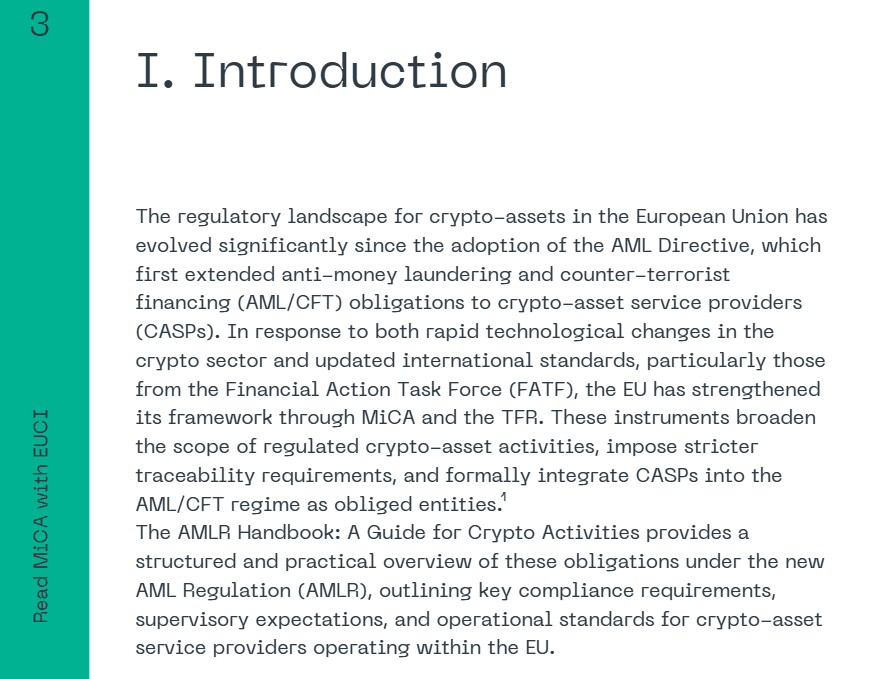European lawmakers are preparing to regulate decentralized finance (DeFi) as a key focus of crypto policy in 2026, despite the existing Markets in Crypto-Assets (MiCA) regulation leaving the sector in a state of limbo.
The world’s first comprehensive regulatory framework for the crypto industry, the Markets in Crypto-Assets Regulation (MiCA), went into effect on Dec. 30, 2024. Its primary objectives are to enhance investor protection, combat fraud, and manage stablecoin reserves effectively.
However, as MiCA enters its final implementation phase, policymakers are turning their attention to regulating DeFi, where many questions remain unresolved, according to Vyara Savova, senior policy lead at the European Crypto Initiative (EUCI).
During Cointelegraph’s Chain Reaction X Spaces show on June 4, Savova mentioned that DeFi protocols remain in regulatory ambiguity.
The framework’s implementation leaves uncertainty around DeFi protocols, as “DeFi is theoretically outside the scope of MiCA,” Savova said, adding:
“No one actually knows what EU policymakers mean by DeFi.”
Savova noted that around mid-2026, authorities in the bloc will begin interpreting how to legally define decentralization.
Quick Summary of the News:
- MiCA, the EU’s comprehensive crypto regulation, went into effect in late 2024.
- Policymakers are now shifting focus to regulating DeFi, starting around mid-2026.
- Key questions remain about how decentralization will be legally defined.
- MiCA’s initial framework received criticism for its gaps regarding decentralized protocols.
- A “MiCA II” framework is unlikely to move forward.
Why It Matters:
The move to regulate DeFi in Europe is significant for several reasons. First, it signals a growing recognition of DeFi’s importance within the crypto ecosystem. As DeFi protocols become more sophisticated and attract more users and capital, regulators are keen to establish clear rules of the road. The lack of clarity around how DeFi fits into the existing regulatory landscape creates uncertainty for businesses and investors. Addressing this ambiguity is essential for fostering innovation and ensuring market stability.
However, the challenge lies in defining “decentralization” in a way that is both legally sound and technically feasible. Overly strict regulations could stifle innovation and drive DeFi activity underground. Conversely, a lack of regulation could expose investors to unacceptable risks.
Market Impact:
The regulatory uncertainty surrounding DeFi could impact the market in several ways. We may see a decrease in investment in European DeFi projects until the regulatory framework becomes clearer. Projects might relocate to more favorable jurisdictions. Increased compliance costs for DeFi platforms operating in Europe are also a possibility.
Expert Take or Personal Insight:
The EU’s approach to regulating DeFi will likely set a precedent for other jurisdictions around the world. How Europe balances innovation with regulation will be crucial. It’s essential that regulators engage with the DeFi community to develop rules that are both effective and practical.
It is unlikely that a blanket “MiCA II” will be introduced. Instead, we can expect targeted legislative updates focused on specific issues such as stablecoins and anti-money laundering. This approach allows regulators to address pressing concerns without creating unnecessary burdens on the broader crypto industry.

Actionable Insight:
Traders and investors should closely monitor developments in European crypto regulation. Pay attention to announcements from EU policymakers and industry groups. Be prepared for potential market volatility as the regulatory landscape evolves. Consider diversifying your crypto holdings to reduce exposure to any single jurisdiction.
Conclusion:
The EU’s move to regulate DeFi in 2026 represents a significant step towards mainstream adoption of crypto assets. While regulatory uncertainty may create short-term challenges, clear and well-designed regulations could ultimately foster innovation and growth in the DeFi sector. The coming years will be crucial for shaping the future of DeFi in Europe and beyond.